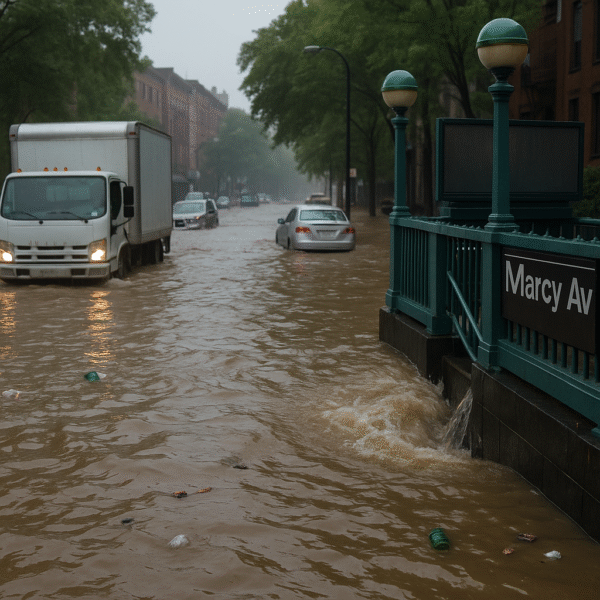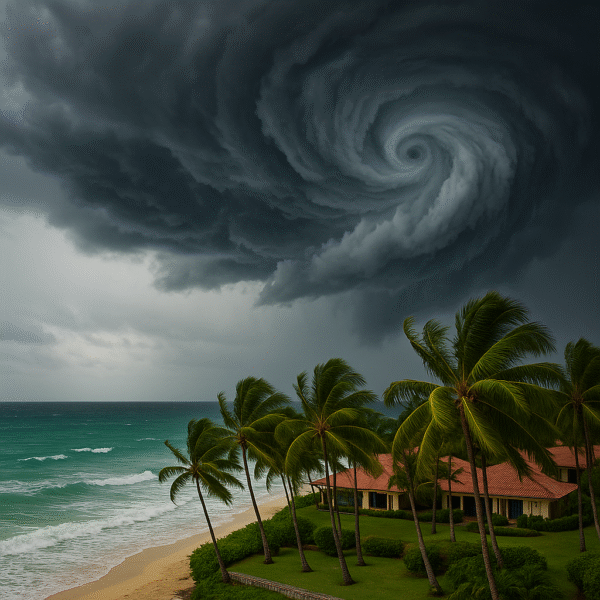London, United Kingdom – July 14, 2025 – As the hurricane season intensifies in the Northern Hemisphere, the UK Foreign, Commonwealth and Development Office (FCDO) has released a fresh travel advisory, alerting British nationals to heightened risks of tropical cyclones between June and November. The advisory serves as a proactive reminder for UK holidaymakers planning trips to vulnerable regions, including the Caribbean, Southeast Asia, Pacific Islands, and the Far East.
According to the FCDO, this period coincides with elevated sea surface temperatures, which fuel powerful storms such as hurricanes, cyclones, and typhoons—weather events capable of significantly disrupting tourism infrastructure and endangering lives.
Hurricane Season: Regions at Elevated Risk
Caribbean
Popular destinations like Barbados, Jamaica, and the Bahamas are at the heart of hurricane activity during this season. While these islands are a perennial favourite for British sunseekers, the same warm waters that attract tourists also contribute to the formation of intense hurricanes.
Southeast Asia
Countries including Thailand, Vietnam, and the Philippines regularly experience torrential rains and typhoons. Seasonal storms in this region are notorious for causing widespread flooding, landslides, and transportation shutdowns, with direct consequences for both residents and international tourists.
Pacific Islands
Islands such as Fiji, Samoa, and Vanuatu are often impacted by cyclones that can cause severe disruptions to local communities and tourism operations, including the closure of resorts and airports.
Far East
The FCDO also flags nations like Japan, Taiwan, China, and South Korea, where typhoons are common. These systems frequently lead to delayed flights, damaged infrastructure, and extended power outages.
Southern Hemisphere (November–April)
While the current focus is on the Northern Hemisphere, travellers planning trips after November to East African coastal destinations like Mauritius, Madagascar, and Mozambique should note the southern cyclone season peaks between November and April.
Why Hurricanes Pose a Major Travel Risk
The FCDO’s advisory outlines several dangers associated with hurricane conditions:
- High Winds: Capable of downing trees, toppling structures, and disabling power and communications.
- Storm Surges: Sudden coastal flooding from hurricanes can cause significant destruction to seaside resorts and roads.
- Torrential Rainfall: Heavy rain can trigger flash floods and landslides, posing immediate threats to travellers and delaying access to emergency services.
These storms are not only natural hazards but also logistical nightmares, potentially causing cancelled flights, closed roads, hotel evacuations, and overwhelmed hospitals.
Travel Safety Recommendations from the FCDO
To minimize the risks while travelling during hurricane season, the FCDO strongly encourages the following precautions:
1. Monitor Official Weather Updates
Use reliable sources such as the UK Met Office, National Hurricane Center (NOAA), or local meteorological agencies in your destination country. Weather can change rapidly, and timely alerts are key to preparedness.
2. Communicate with Travel Providers
Coordinate with your airlines, tour operators, and accommodation hosts to stay informed about changes in your itinerary or cancellation policies. Many providers offer flexible rebooking during severe weather events.
3. Know the Local Emergency Protocols
Familiarise yourself with emergency shelters, evacuation routes, and local helplines at your destination. Hotels in storm-prone areas often have hurricane procedures that guests should understand upon check-in.
4. Secure Comprehensive Travel Insurance
Ensure your travel insurance covers weather-related cancellations, delays, and medical emergencies. Policies without natural disaster clauses may leave you financially exposed.
Importance of Relying on Official Sources
British nationals are urged to rely exclusively on verified information from government websites and embassy updates. The FCDO continues to update its country-specific travel pages with alerts on ongoing weather threats, transport disruptions, and entry requirements.
Tourists can visit the official UK FCDO website for real-time information and updates by destination.
Conclusion: Stay Smart, Stay Safe
While the beauty of tropical destinations continues to allure travellers, the increasing frequency and intensity of storms globally—exacerbated by climate change—necessitates caution. The FCDO’s guidance aims to balance travel enjoyment with safety by promoting awareness and preparation.
British tourists travelling between June and November are strongly advised to plan ahead, stay informed, and prioritise personal safety when visiting hurricane-prone regions. Being weather-aware is no longer optional—it’s essential travel wisdom.
For more travel news like this, keep reading Global Travel Wire

















